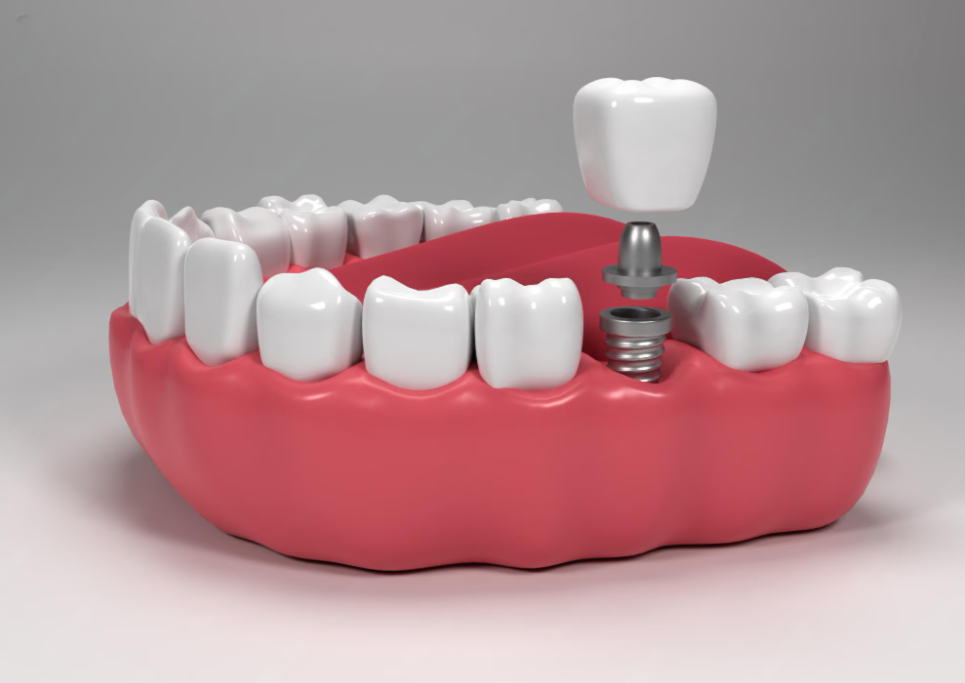Do you know how the jawbone changes because of missing teeth after some time? Lack of tooth support can cause your jaw to lose its strength and bone density, which in turn will result in changes to your face. A dentist in Didsbury can use dental implants not only to bring back your smile but also to save your jaw from these complications.
What Are Dental Implants?
Dental implants are the strong and durable posts that are surgically installed in your jawbone to serve as artificial roots for your teeth. When they fuse with the bone, they allow you to wear a crown, a bridge, or a denture, thus providing you with a stability that is very close to your natural teeth. In contrast to traditional dentures, implants are the source of jawbone stimulation, which in turn leads to bone health, and there is no possibility for the skin above the teeth to look sunken, as usually happens after losing teeth.
How Do Missing Teeth Affect Your Jaw?
When a tooth is lost, the jawbone underneath no longer receives the stimulation necessary to maintain its density. Over time, this can lead to:
- Bone resorption, where the jaw shrinks
- Misalignment of remaining teeth
- Weakening of bite function
- Changes in facial appearance, such as sagging cheeks
A dentist in Carstairs can evaluate your jaw health and determine if dental implants are the right solution to prevent these issues.
What Are the Benefits of Dental Implants for Jaw Health?
The advantages of dental implants in Didsbury to the health of the jaw are huge and remain for a long time. Implants make it:
- Continue bone strength through the simulation of natural tooth roots
- Keep the vigour and the outline of your jaw
- Increase masticatory effectiveness as well as other functions of the oral cavity
- Help the adjacent teeth to be stable and avoid movement
- Provide better speech and give the face support for the beauty
Besides that, dental implants near you can provide you with the opportunity to eat and talk without any concerns about your jaw being supported and safe; like, you can do these activities with confidence.
How Do Dental Implants Support Oral Health Care?
Proper maintenance forms the basis for the longevity of your implants. After the implant work, your dental implants delivered locally should be preserved with standard oral hygiene routines:
- Use a toothbrush with soft bristles and brush gently twice a day
- Floss every day, giving special attention to the implant site
- Get regular professional cleanings and go for checkups.
- Do not chew on very hard or sticky foods that can put a lot of pressure on the implant
Keeping up with checkups protects your jaw and keeps implants performing well.
Who Can Benefit From Dental Implants?
The dental implants in Carstairs can be a suitable solution for many adults who have lost their teeth. Some factors that can lead to you being a good candidate:
- Enough bone in the jaw to hold the implant securely
- Gums and other oral tissues are in good health
- A promise of the practice of good oral hygiene
- A wish to both stop the decay of the jawbone and keep the face’s structural integrity
If you visit a dentist near you, he or she will help you determine your personal requirements and come up with a tailored treatment plan.
Step Into Better Jaw Care Now – Visit Today!
Are you set to safeguard your jaw and restore your smile? Please book an appointment with Mountain View Smiles today to learn how dental implants can safeguard your oral health and provide a strong, confident smile.
FAQs
Can dental implants stop jawbone loss?
Implants do indeed energize the jaw as the natural roots do, thus preventing the bone from resorbing.
Is it safe for the elderly to use implants?
Yes, implants can be given to most adults with adequate bone and gum health.
What is the durability of dental implants?
Implants can stay strong for 15–25 years or more if looked after.
Is it possible for implants to rehabilitate the functions of chewing and speech?
Sure. They not only regain the lost bite power but also enable clear and confident talk.
What is the recovery process like?
Most patients experience minor discomfort. Healing normally takes several months for the implant to fuse with the jaw.

